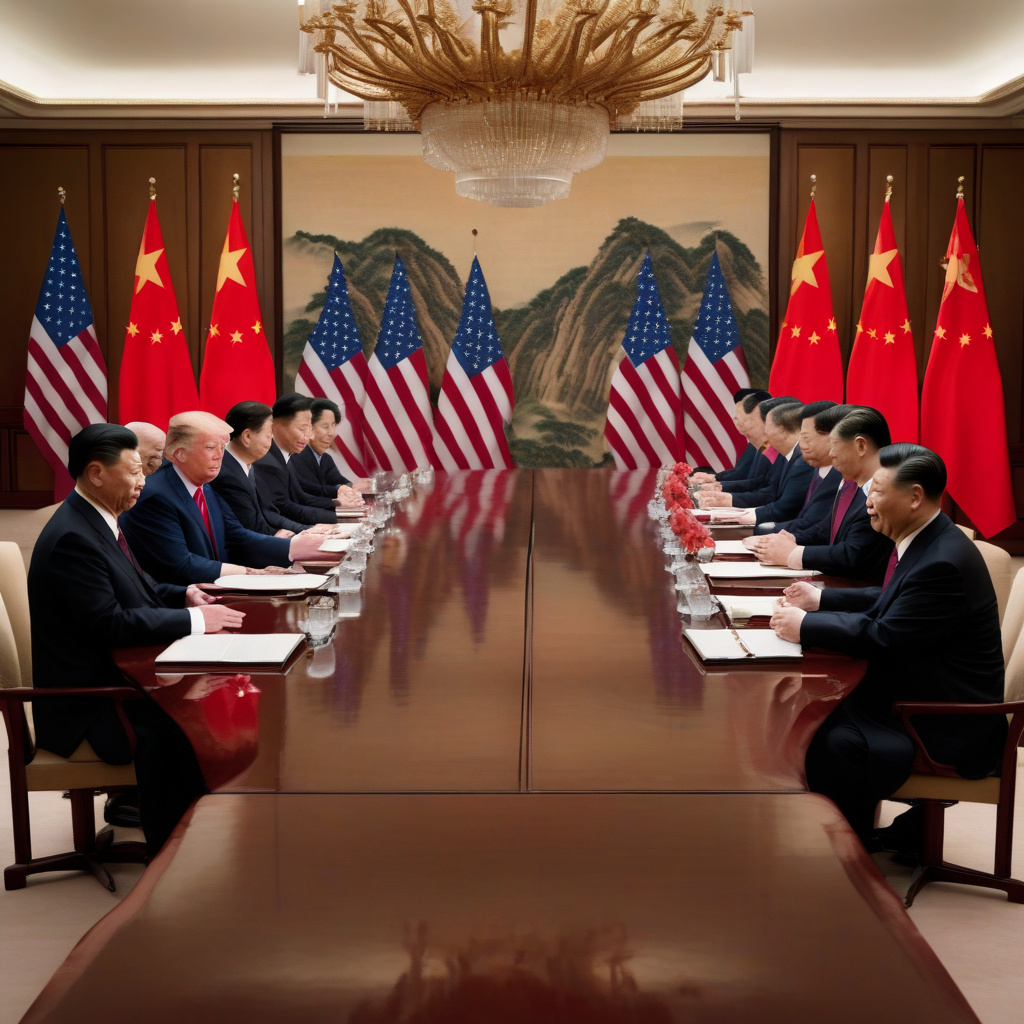Trump Softens Tone on China to Secure Xi Summit and a Trade Deal
In a notable shift in diplomatic strategy, President Donald Trump has softened his previously confrontational stance towards China. This change appears to be a calculated move aimed at securing a high-stakes summit with Chinese President Xi Jinping and ultimately fostering a trade deal with the world’s second-largest economy. As tensions between the two nations have escalated over the past few years, Trump’s recent approach may signal a pivotal moment in U.S.-China relations.
The backdrop of this diplomatic evolution is a complex interplay of economic and political factors. The trade war that began in 2018 saw both countries imposing tariffs on each other’s goods, leading to significant disruptions in global supply chains and affecting businesses and consumers alike. Analysts have pointed out that the economic ramifications of this ongoing conflict were becoming increasingly untenable for both nations. As the U.S. economy faced mounting pressures, including supply chain disruptions and inflationary concerns, the need for a resolution became more pressing.
Trump’s previous rhetoric towards China was often marked by accusations of unfair trade practices and currency manipulation. However, as the prospect of a face-to-face meeting with Xi loomed, Trump began to adopt a more conciliatory tone. This shift is not merely a tactical maneuver; it reflects a broader understanding that maintaining a working relationship with China is essential for addressing global challenges, including climate change and public health crises.
In recent statements, Trump has emphasized the importance of cooperation, indicating a willingness to engage in dialogue rather than confrontation. This pivot is crucial, especially as both economies grapple with the aftereffects of the pandemic. The International Monetary Fund (IMF) has projected that the global economy will grow, but this recovery is fraught with uncertainty, making U.S.-China cooperation more vital than ever.
Moreover, the political landscape in the United States has also played a role in Trump’s softer approach. With the upcoming elections and ongoing scrutiny from various stakeholders, including businesses and constituents, the administration is under pressure to demonstrate effective leadership in foreign relations. By positioning himself as a negotiator who seeks peace and cooperation rather than conflict, Trump aims to bolster his image domestically and internationally.
The potential summit with Xi Jinping could serve as a critical turning point. It presents an opportunity for both leaders to address a range of issues beyond trade, including technology, security, and human rights. For Trump, the summit could be framed as a diplomatic triumph, showcasing his ability to engage with adversaries to secure mutually beneficial outcomes.
In terms of tangible results, analysts suggest that a trade deal would require significant compromises from both sides. China may need to increase its purchases of U.S. goods, while the U.S. might consider rolling back some tariffs that have burdened American consumers and businesses. Such negotiations are undoubtedly complex, but the willingness of both leaders to meet indicates a shared interest in avoiding further escalation.
Moreover, the financial markets are closely watching these developments. Investors are keen to see how the dynamics between the two countries evolve, as any positive progress could lead to a surge in market confidence. Conversely, any perceived setbacks could prompt volatility, underscoring the interconnectedness of U.S.-China relations and global economic stability.
In conclusion, President Trump’s decision to soften his tone towards China reflects a strategic pivot aimed at securing a trade deal and a summit with President Xi Jinping. As both nations navigate the complexities of their relationship, the importance of diplomacy and cooperation cannot be overstated. With the stakes higher than ever, the world watches closely as these two powerful leaders work towards a future that could redefine global trade and international relations.
trade, diplomacy, US-China relations, economic cooperation, trade deal
